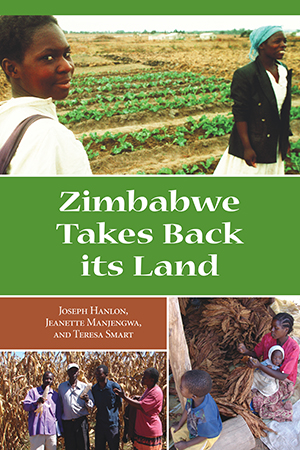
- 2012/245 pages
- Also of interest: Power Politics in Zimbabwe by Michael Bratton
A Kumarian Press Book
Zimbabwe Takes Back Its Land
Hardcover: $69.95
ISBN: 978-1-56549-519-7
Paperback: $28.00
ISBN: 978-1-56549-520-3
Ebook: $28.00
ISBN: 978-1-56549-522-7
Countering the dominant media narratives of economic stagnation, Zimbabwe Takes Back Its Land offers a more positive and nuanced assessment of the results of the contentious land reforms that were introduced in Zimbabwe in 2000.
The authors do not minimize the depredations of the Mugabe regime. Rather, they show how "ordinary" Zimbabweans have taken charge of their destinies in creative and unacknowledged ways on the farms that they obtained through the land-reform programs. They offer a compelling story of how, through collective action, the poor can improve their lives even in the midst of hostile circumstances.
The authors do not minimize the depredations of the Mugabe regime. Rather, they show how "ordinary" Zimbabweans have taken charge of their destinies in creative and unacknowledged ways on the farms that they obtained through the land-reform programs. They offer a compelling story of how, through collective action, the poor can improve their lives even in the midst of hostile circumstances.







